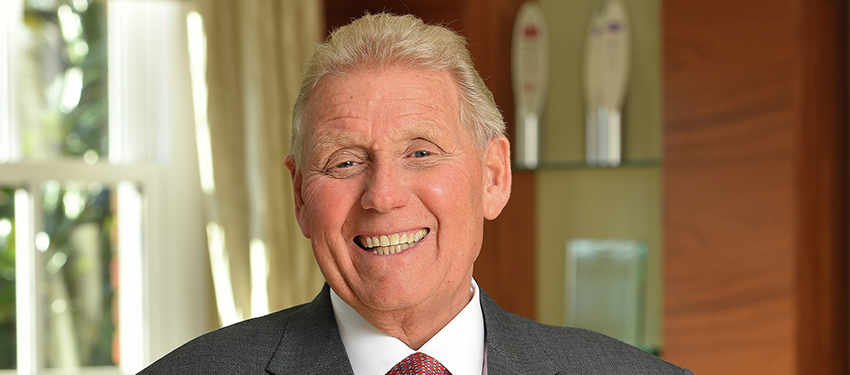You don't have to spend much time with
Tony Pidgleyto spot the subjects that he's passionate about. Over the course of a freewheeling conversation it is the themes of affordability,
communityand how to build more homes that he keeps returning to, revealing the importance he places on such issues.
"We have to address the key workers of this country," he says. "It's no good nurses living an hour away when you're having a heart attack. We need a simple rule. Any site over, say, 1,000 units has to be 30% affordable. Housebuilders will know where they stand and land prices will drop accordingly."
The bureaucracy surrounding development also clearly irks - "It's only right and proper that planning should be democratic and open, but once permission is granted just leave the builders to get on with it" - but the proposed 30% rule is also driven by Berkeley's experience with major regeneration schemes across London. It is something Pidgley freely admits is driven by both social and business considerations.
Housing aspiration
The 'major regeneration projects' Pidgley talks of include some of London's highest-profile schemes - Royal Arsenal Riverside in Woolwich; Kidbrooke Village in Greenwich; Woodberry Down in Finsbury Park - and are perhaps where most people first encounter Berkeley.
"We have a very simple view of regeneration," says Pidgley. "There's a lot of estates that have been allowed to slip into deprivation, but to be a success places need hope and aspiration. The schemes we've undertaken now include facilities such as doctors' surgeries, cinemas and schools and are places where people want to live. But that can only be paid for if the density is increased.
"Take Kidbrooke, somewhere that used to be a no-go area but has now been transformed. Yes, the number of homes has gone up from 2,000 to 5,500, but that increased density has paid for local infrastructure, sports facilities, parkland. These places are now thriving, and I challenge you to go and see them. They're successful communities, creating aspiration without differentiating between the types of tenure. Housebuilding should be a force for good, and its potential to transform needs to be recognised."
Public policy
When talk turns to what the Government could do to help housebuilders, his response is clear: less red tape; foster the wider economy; and reform stamp duty.
"Central Government, local authorities, the Mayor of London - they need to understand housing as a force for good, and reduce red tape to allow this happen. Planning should be debated, but needs to be viewed in the context of the housing crisis we're in. We need more homes and they need to be affordable, so make the planning decisions quickly and let the housebuilders get cracking.
"There's also an urgent need to keep the economy growing. It's too early to tell what the fallout from Brexit will be, but it's created uncertainty so why not overcome that by getting started on major infrastructure projects? A new London runway, Crossrail 2, HS2 - let's get building. The public mood seems to be one of getting on with it now a decision has been made, but the Government needs to back this up.
A word to the wise
It has been 40 years since Berkeley was established, and as is often the way with anniversaries the milestone has prompted some reflection. Asked about what advice the 2016 Pidgley would give to his 1976 counterpart, he touches on the approach that has served him, and Berkeley, well.
"I like people who aspire to do things. If I, uneducated, can build this company through nothing more than common sense and energy, then anyone can. That would be my advice to anyone: apply common sense, work hard, do your job to the best of your ability. Oh, and be decent and polite. Say 'please' and 'thank you'. I'm not soft or a pushover, but it's the easiest thing to have manners.
"When we started, did I believe it would get to this size? No. Am I proud of it? Yes. Is it a fantastic business? Yes. What's made it is the application of common sense and the following of our instincts. We try to do decent things and follow a code of conduct. Do we always get it right? No. But we try, and I think that's important. It's been tremendous building Berkeley, it really has. We've had a lot of fun."
